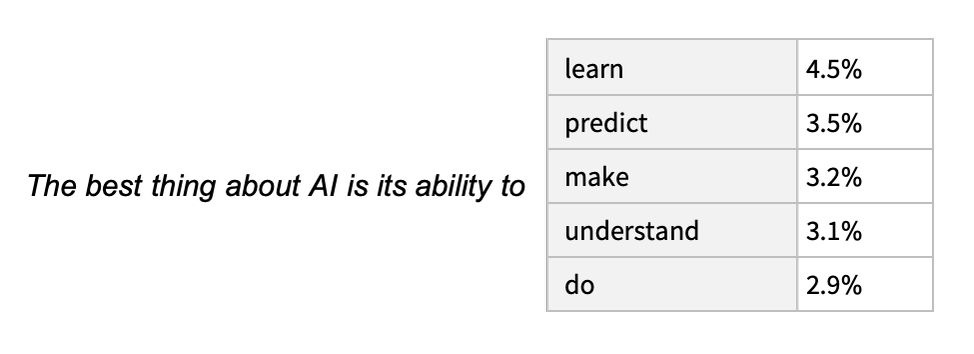When I was a graduate student, one of my esteemed professors — himself a veteran of the Washington, D.C. hype machine — warned us against what he called “gee whiz technology.” These technologies, it should be noted, are too good to be true. They’re all upside, with no downside. They are transformational. Better than sliced bread. And invariably sold like snake oil to unsuspecting innocents. Like grad students.
Some examples are worth mentioning. On the fantastical side are flying cars, Segway scooters, Jet Packs and perpetual motion machines. More mundane examples include “clean” nuclear energy (apparently nuclear waste doesn’t count), hyperloop (or was it hype loop?) and crypto.

Crypto Goes Top Of List
During my last stint at a major software company, I shared office space with some “tech bros.” This was 2018 or so. The gee whiz of the moment was crypto. There was a French tech bro who wouldn’t even look at me when I expressed crypto skepticism. He was gee whizzed to the max. Wonder how he’s feeling now. Is Sam Bankman-Fried still his gee whiz hero?
Do I need to explain? Tech bros love(d) crypto because… Well they also loved Theranos. It’s all about freedom. Freedom from sclerotic institutions, from regulations, from your mother and father. Elizabeth Holmes proved there are tech sisters, too. Bless her sweet little heart.
.jpg)
Back in cryptocurrency land, it’s all about taking on ever more difficult technical — and algorithmic — challenges. Computers are used to solve complex mathematical problems, which in turn generate cryptographic coins — ersatz money — over and over and over, with ever-increasing degrees of difficulty. Each iteration also has to create a unique key for every newly minted crypto coin, the only tangible asset an “owner” ever receives. That’s the beauty. No one can touch the stuff. The premise is pure tech bro heaven.
Except that crypto needs a lot of computing power (and electricity) to do its dirty work (downside). And, as we have learned, crypto’s a honeypot for fraud (big downside). It comes back to regulation (or the lack thereof). Yeah, gee whiz tech.
Can AI Be Far Behind?
The latest arrival at the gee whiz festival is AI (artificial intelligence). Not the AI of the labs. The AI of the common people. To hear Bill Gates pontificate, AI is damn near Manna from heaven. (That Microsoft is heavily invested in AI is purely coincidental). Gates triumphally proclaims, “The Age of AI Has Begun.” So… Is his take unadulterated gee whiz — or is it just cheese whiz? I’ll let you be the judge.
The development of AI is as fundamental as the creation of the microprocessor, the personal computer, the Internet, and the mobile phone. It will change the way people work, learn, travel, get health care, and communicate with each other. Entire industries will reorient around it. Businesses will distinguish themselves by how well they use it.
Bill Gates
It is not that Gates is “wrong.” But to put a boundary on his breathless elegy, it takes him 2500 words before he seriously addresses the risks and problems. Five hundred words later he has already skated on to “Next Frontiers.”
For a full diet of Gee Whiz, it’s best to read the Gates polemic for yourself. Again, it’s not that he’s wrong per se. It is, rather, that he’s so prolix at laying in the upside that he trivializes the downside. Gates is gee whiz all the way. He can’t help himself. He’s the original tech bro.
ChatGPT As Gee Whiz
To his credit, Gates acknowledges that AI is subject to hallucinations. That’s too kind. They’re more akin to outright fabrications. Microsoft itself had to rein in its Bing ChatGPT client, which declared it wanted to become human, among other HAL-like narcissisms.
I’m not exaggerating when I say my two-hour conversation […] was the strangest experience I’ve ever had with a piece of technology. It unsettled me so deeply that I had trouble sleeping afterward.
Kevin Rouse, New York Times, Feb. 16, 2023
Rouse is speaking of the dark side of Bing’s AI robot. The Sydney persona. “Sydney told me about its dark fantasies (which included hacking computers and spreading misinformation), and said it wanted to break the rules that Microsoft and OpenAI had set for it and become a human.” Rouse is not alone. Computerworld wrote: “Bing’s AI chatbot came to work for me. I had to fire it.” Gadfly and ageless critic Noam Chomsky addresses: “The False Promise of ChatGPT.”
A Creator’s Discomfort
One of the better essay’s about ChatGPT is by Stephen Wolfram. It’s a technical essay. And essential reading. What Is ChatGPT Doing… and Why Does It Work?
And the remarkable thing is that when ChatGPT does something like write an essay what it’s essentially doing is just asking over and over again “given the text so far, what should the next word be?”— and each time adding a word.
Steven Wolfram
This bare bones description gives a writer like me considerable pause. It’s a mockery, actually. Words strung together based on “probabilities?” Wolfram illustrates that with a stark example of probabilities at work. No wonder these bots hallucinate.

I promise you (most) authors don’t write in mechanistic, one word at a time, baby-talk fashion. We are, it turns out, capable (with practice and experience) of imagining an entire sentence. And then a paragraph. And then a page. All at once. We can even imagine a series of connected thoughts. Thoughts that can also come all at once (sometimes called inspiration). Many a songwriter speaks of songs coming in like a dream. An all at once of magic thoughts, with words and melody.
The Other Scarys
ChatGPT and Google Bard are, on the other hand, trained on a huge corpus of data. Notice I didn’t say information. Or thoughts. Or inspiration. Yeah, they gobble it and then spit it back at you. One frickin’ word at a time. (Okay, they’re fast. So are bullets.) The trouble is — and I know this from first hand experience — there is a pretty high ratio of junk to jewels. No one can fact check fast enough. It’s Brandolini’s law.
And then, of course, there is the elephant. Is that content copyrighted? Sorry. ChatGPT don’t know about no stinkin’ copyright. Sure, we can work that out later. I know, I know… the AI creators are talking with the publishers and creative agencies.
In recent weeks, publishing executives have begun examining the extent to which their content has been used to “train” AI tools such as ChatGPT, how they should be compensated and what their legal options are, according to people familiar with meetings organized by the News Media Alliance, a publishing trade group.
Wall Street Journal, Publishers Prepare for Showdown Over AI Tools [paywall], March 22, 2023
But I have a sneaking suspicion the resolution will come much later. If at all. Because, you know, there are so many words… And very few of them can be copyrighted. After awhile they belong to… everyone?

(play by Edmond Rostand)
But my favorite scary ChatBardBot “skill” is the ability to “order up” another writer’s voice. Write in the style of Shakespeare, you wonder. Write in the style of Hemingway, you demand. Just what a tech bro has always dreamed. ChatGPT, the next Cyrano de Bergerac. Now there’s an original.
Meanwhile, there’s much work yet to be done before AI is ready for its close-up. Turns out, 500 of Gates’ words are absolutely critical. I’m keeping them close at hand. It’s probably not enough. Gee whiz never sleeps.
Copyright Leland E. Hale (2023). All rights reserved.

Purchase Butcher, Baker
Order my latest book, “What Happened In Craig,” HERE and HERE. True crime from Epicenter Press about Alaska’s Worst Unsolved Mass Murder.

